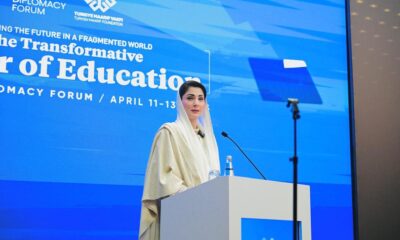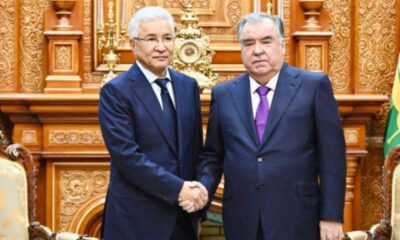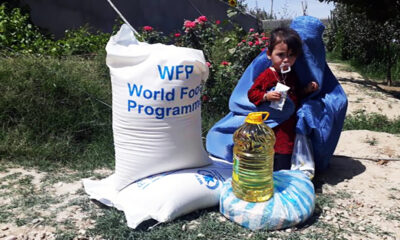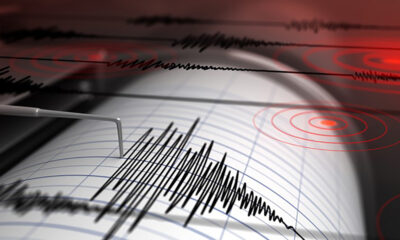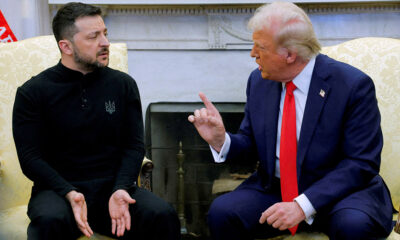Regional
Russia’s Lavrov aligns positions with Iran on nuclear programme
Lavrov had earlier said in Tehran that Moscow was sure that diplomatic measures were still on the table when it came to resolving issues around Iran’s nuclear programme.
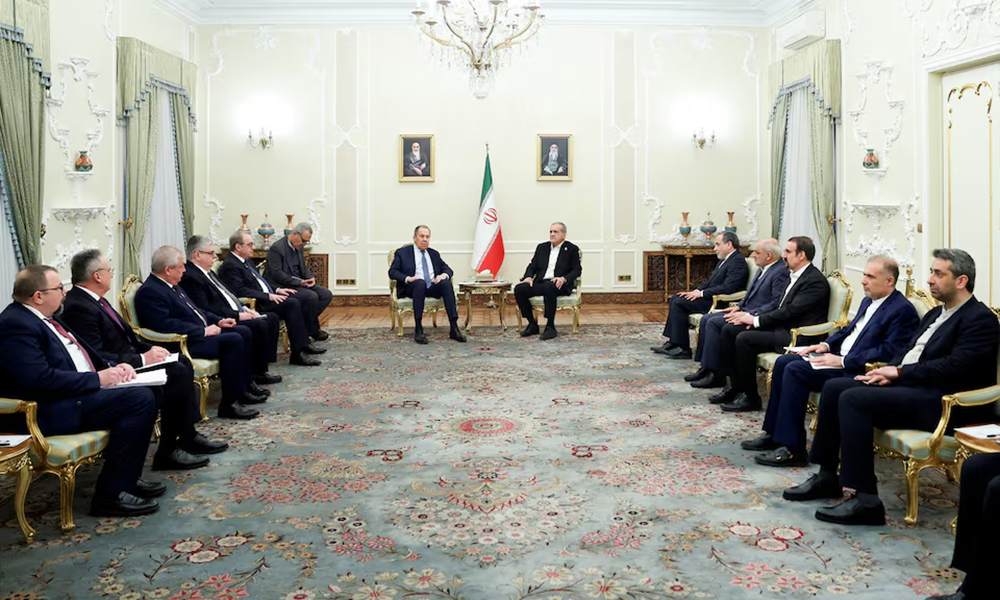
Russian Foreign Minister Sergei Lavrov and Iran’s top leaders aligned positions on issues around Iran’s nuclear programme at talks in Tehran on Tuesday, Russia’s Foreign Ministry said.
Lavrov discussed a wide range of bilateral and regional issues with both President Masoud Pezeshkian and his Iranian counterpart Seyed Abbas Araghchi, a ministry statement said.
“Positions were aligned on the situation around the Joint Comprehensive Plan of Action on the Iranian Nuclear Programmе,” it said.
Russia is a signatory of the 2015 JCPOA deal alongside the U.S., China, France, Britain and Germany. The deal lifted sanctions on Iran in exchange for curbs on its nuclear activities
Lavrov had earlier said in Tehran that Moscow was sure that diplomatic measures were still on the table when it came to resolving issues around Iran’s nuclear programme.
Rafael Grossi, director general of the International Atomic Energy Agency, the U.N. nuclear watchdog, said last week that Iran continued to enrich uranium well beyond the needs for commercial nuclear use despite U.N. pressure to stop it.
Grossi told Reuters that while the pace of uranium enrichment had slowed slightly since the end of last year, Iran was still enriching at an elevated rate of around 7 kg of uranium per month to 60% purity.
Iran denies seeking nuclear weapons but no other state has enriched to that level without producing them.
Grossi said he wanted to visit Tehran next month for the first time in a year.
Russia and Iran have drawn closer in recent years, with Iran supporting Russia in its military campaign in Ukraine. The two sides signed a strategic partnership agreement in January.
Lavrov discussed a wide range of bilateral and regional issues during his visit, including Syria, Lebanon and Afghanistan and the Israel-Palestine conflict, the Russian foreign ministry said.
Russian news agencies reported that Lavrov later travelled on to Qatar.
Regional
Tajikistan President and CSTO Chief discuss bolstering security along Tajik-Afghan border
The two sides reviewed the progress of the first stage of a joint program among CSTO member states to strengthen border protection in this area.
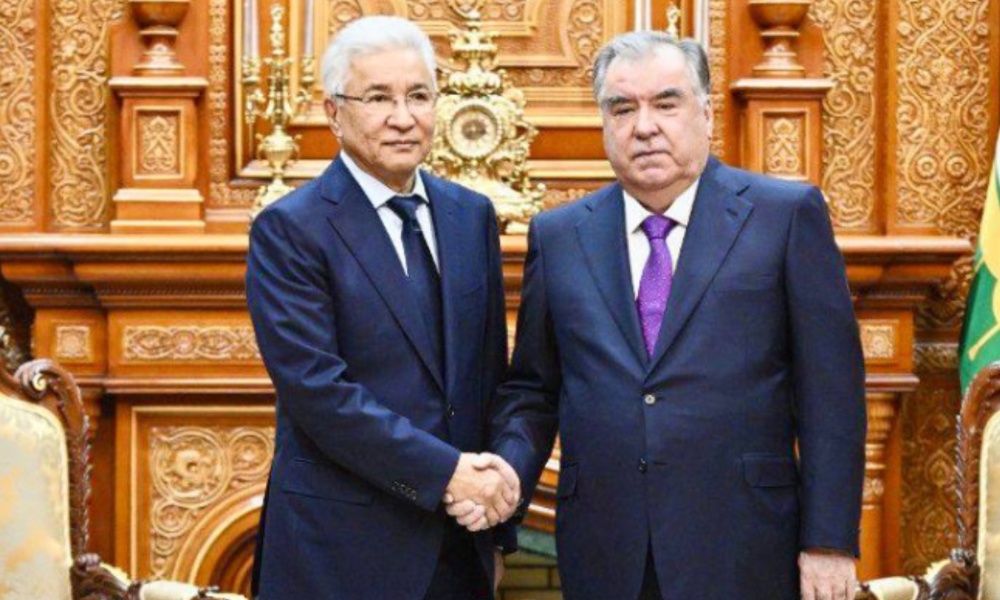
Regional
Iran, US hold ‘positive’ talks in Oman, agree to resume next week
Araqchi said his delegation had a brief encounter with its U.S. counterpart headed by Witkoff, after they exited the talks.
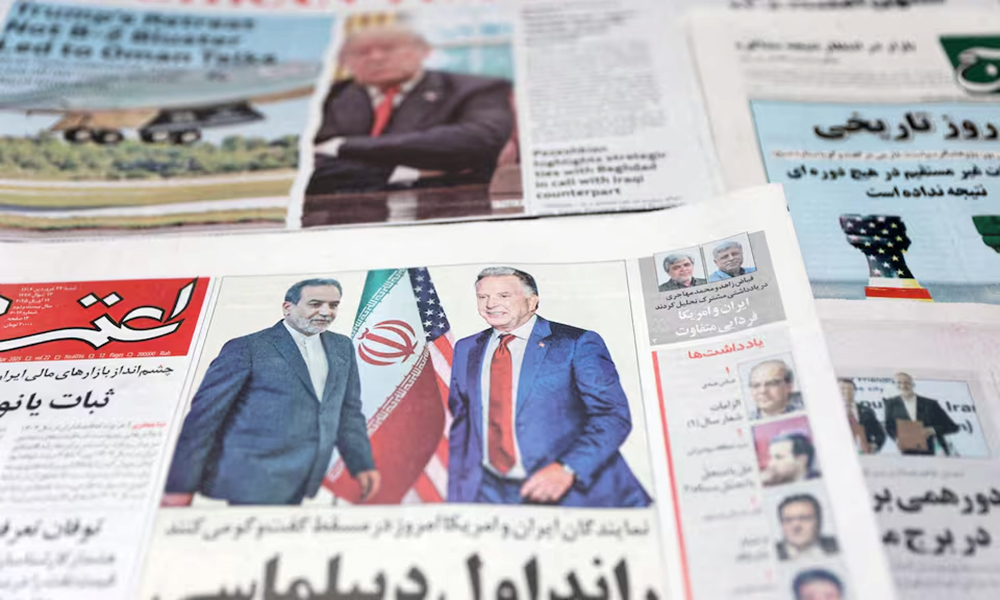
Iran and the U.S. said they held “positive” and “constructive” talks in Oman on Saturday and agreed to reconvene next week in a dialogue meant to address Tehran’s escalating nuclear programme, with President Donald Trump threatening military action if there is no deal, Reuters reported.
“I think we are very close to a basis for negotiations and if we can conclude this basis next week, we’ll have gone a long way and will be able to start real discussions based on that,” Iranian Foreign Minister Abbas Araqchi told state television.
Araqchi said the talks – the first between Iran and a Trump administration, including his 2017-2021 first term – took place in a “productive, calm and positive atmosphere”.
“Both sides have agreed to continue the talks … probably next Saturday,” Araqchi added. “Iran and the U.S. side want an agreement in the short term. We do not want talks for (the sake of) talks.”
The White House called the talks involving Trump’s Middle East envoy Steven Witkoff, U.S. Ambassador to Oman Ana Escrogima and Araqchi “very positive and constructive.”
“These issues are very complicated, and Special Envoy Witkoff’s direct communication today was a step forward in achieving a mutually beneficial outcome,” it said in a statement. “The sides agreed to meet again next Saturday.”
Asked about the talks, Trump told reporters on Saturday night: “I think they’re going OK.”
“Nothing matters until you get it done, so I don’t like talking about it, but it’s going OK. The Iran situation is going pretty good, I think,” he said on Air Force One.
Trump made a surprise announcement on Monday that Washington and Tehran would begin talks in Oman, a Gulf state that has mediated between the West and the Islamic Republic before. It has brokered the release of several foreign citizens and dual nationals held by Iran, read the report.
Saturday’s exchanges were indirect and mediated by Oman, as Iran had wanted, rather than face-to-face, as Trump had demanded. Each delegation had its separate room and exchanged messages via Oman’s foreign minister, according to Iranian Foreign Ministry spokesman Esmail Baghaei.
Araqchi said his delegation had a brief encounter with its U.S. counterpart headed by Witkoff, after they exited the talks.
“After the end of more than 2-1/2 hours of indirect talks, the heads of the Iranian and American delegations spoke for a few minutes in the presence of the Omani foreign minister as they left the talks. It (the encounter) was based on our political etiquette,” Araqchi said.
“The current focus of the talks will be de-escalating regional tensions, prisoner exchanges and limited agreements to ease sanctions (against Iran) in exchange for controlling Iran’s nuclear programme,” an Omani source told Reuters.
Baghaei denied this account but did not specify what was false.
Trump, who in his first term withdrew the U.S. from a 2015 big-power accord with Tehran, has again brought a tougher approach to a Middle Eastern power whose nuclear programme Washington’s ally Israel regards as an existential threat.
At the same time, Iran and allied groups have been weakened by the military offensives Israel has launched across the region, including air strikes in Iran, during its war with Hamas after the Palestinian militant group Hamas attacked Israel from Gaza in October 2023, Reuters reported.
Mikhail Ulyanov, Russia’s ambassador to international bodies in Vienna, called the statements issued by both sides after the talks “encouraging”.
Tehran approached the talks warily, sceptical they could yield a deal and suspicious of Trump, who has repeatedly threatened to bomb Iran if it does not halt its accelerating uranium enrichment programme – regarded by the West as a possible pathway to nuclear weapons.
While each side has talked up the chances of some progress, they remain far apart on a dispute that has rumbled on for more than two decades. Iran has long denied seeking nuclear weapons capability, but Western countries and Israel believe it is covertly trying to develop the means to build an atomic bomb.
“This is a beginning. So it is normal at this stage for the two sides to present to each other their fundamental positions through the Omani intermediary,” Baghaei said.
Signs of progress could help cool tensions in a region aflame since 2023 with wars in Gaza and Lebanon, missile fire between Iran and Israel, Houthi attacks on Red Sea shipping and the overthrow of the government in Syria.
However, failure would aggravate fears of a wider conflagration across a region that exports much of the world’s oil. Tehran has cautioned neighbouring countries that have U.S. bases that they would face “severe consequences” if they were involved in any U.S. military attack on the OPEC member.
“There is a chance for initial understanding on further negotiations if the other party (U.S.) enters the talks with an equal stance,” Araqchi told Iranian TV.
Iran’s Supreme Leader Ayatollah Ali Khamenei, who has the final say on key state matters, has given Araqchi “full authority” for the talks, an Iranian official told Reuters.
Iran has ruled out negotiating its defence capabilities such as its ballistic missile programme.
Western nations say Iran’s enrichment of uranium, a nuclear fuel source, has gone far beyond the requirements of a civilian energy programme and has produced stocks at a level of fissile purity close to those required in warheads.
Trump, who has restored a “maximum pressure” campaign on Tehran since February, ditched a 2015 nuclear pact between Iran and six world powers, including Russia and China, in 2018 during his first term and reimposed crippling sanctions on the Islamic Republic.
Since then, Iran’s nuclear programme has leaped forward, including by enriching uranium to 60% fissile purity, a technical step from the levels needed for a bomb.
Regional
South Korea establishes diplomatic ties with Syria
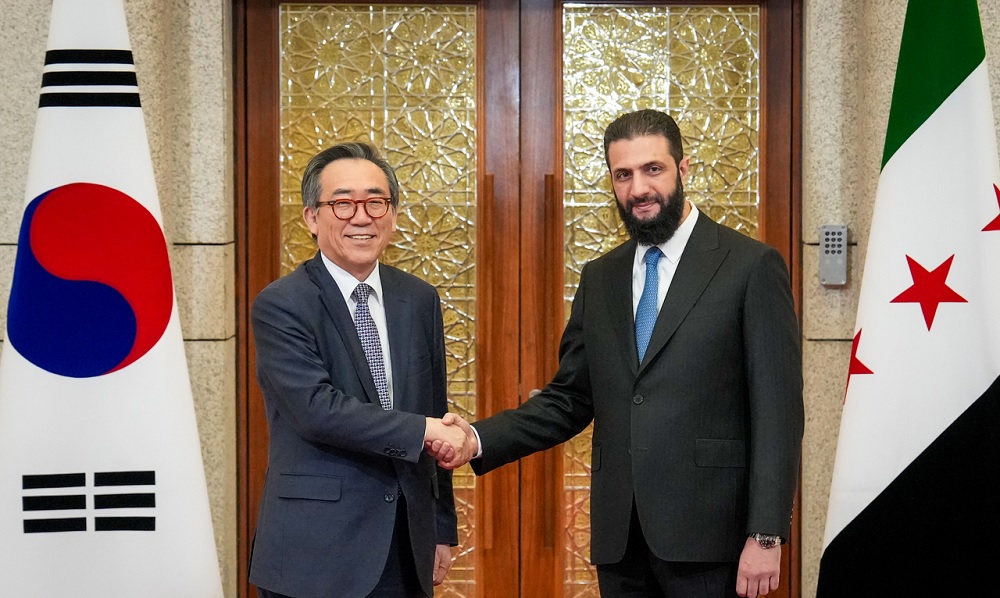
South Korea and Syria have signed an agreement in Damascus establishing diplomatic relations, the South Korean foreign ministry said on Friday, opening new ties with a traditional ally of its rival North Korea.
The event marks a milestone for South Korea now having established diplomatic ties with all 191 U.N. member states and opening “a new chapter for bilateral cooperation with Syria, which had long remained distant due to its close ties with North Korea,” the South Korean foreign ministry said, Reuters reported.
South Korea established diplomatic relations with Cuba last year, another old ally of the North.
North Korea’s state media ceased mentions of Syria since the overthrow of former President Bashar al-Assad in December except leader Kim Jong Un once referring to “the Middle East crisis” in passing.
A joint communique was signed by South Korean Foreign Minister Cho Tae-yul and Syria’s Asaad al-Shibani on Thursday, and Cho expressed willingness to share South Korea’s development experience to support Syria’s reconstruction, the ministry said.
Cho later met Syrian President Ahmed al-Sharaa, it said.
-

 Sport5 days ago
Sport5 days agoAfghanistan’s national futsal team heads to Morocco
-
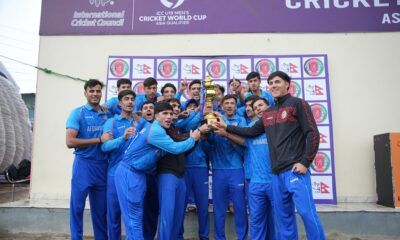
 Sport4 days ago
Sport4 days agoAfghanistan win U-19 cricket series despite rain-impacted loss to Nepal
-
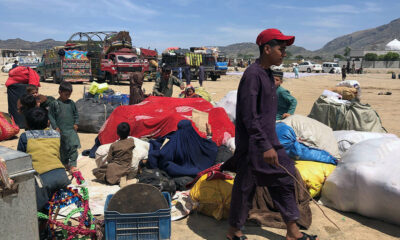
 Latest News5 days ago
Latest News5 days agoPakistan expels thousands of Afghan nationals in fresh drive, says UNHCR
-
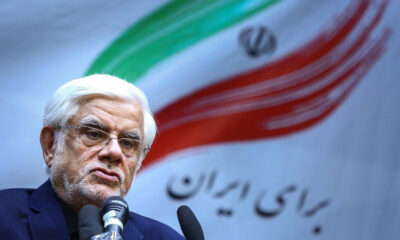
 Latest News4 days ago
Latest News4 days agoIran’s Vice President advocates stronger ties with neighbors, especially Afghanistan
-
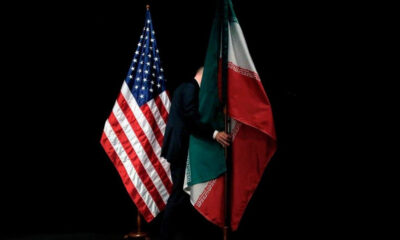
 Regional4 days ago
Regional4 days agoUS energy secretary sees tighter sanctions on Iran without deal
-
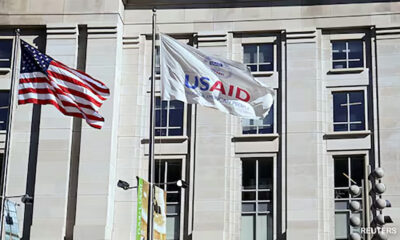
 Latest News5 days ago
Latest News5 days agoTrump administration moves to restore some terminated foreign aid programs, sources say
-
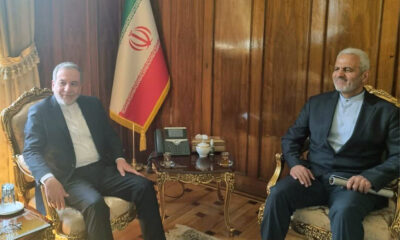
 Latest News4 days ago
Latest News4 days agoBigdeli updates Iran’s FM on current status of bilateral relations with Kabul
-
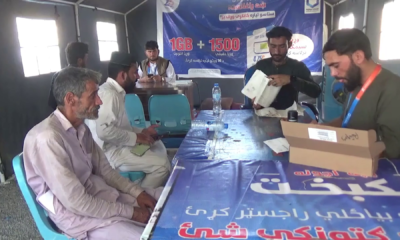
 Latest News4 days ago
Latest News4 days agoAWCC distributes free SIM cards to returning refugees from Pakistan


